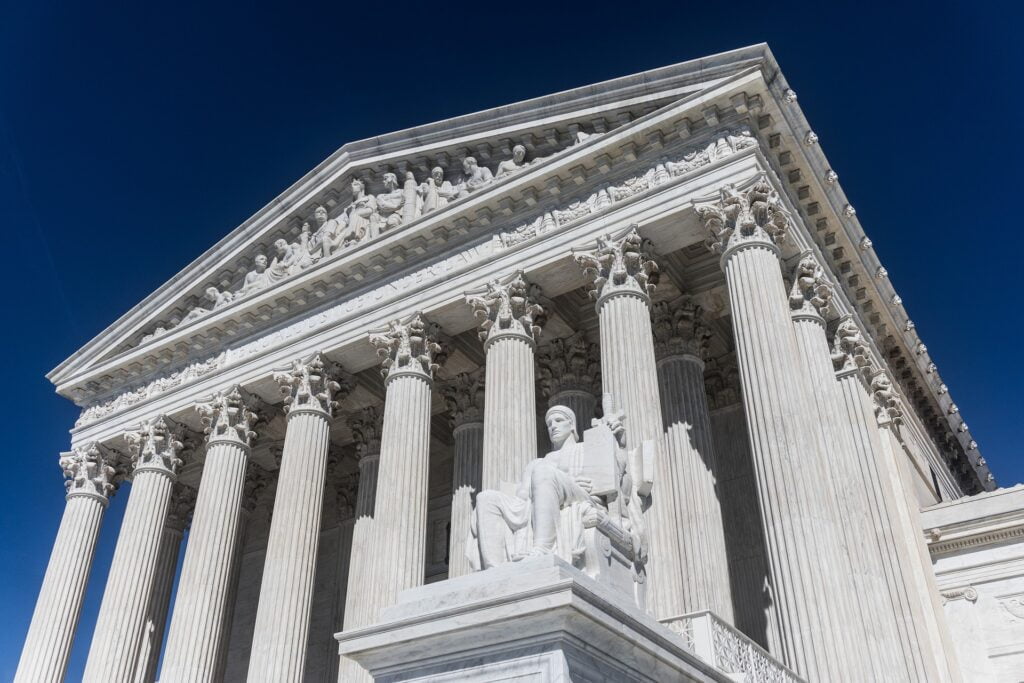A power of attorney is a helpful legal tool many people use to make sure the rightful beneficiaries receive the life insurance money. At the same time, it is not that easy to understand. If it is not used correctly or the person with a power of attorney does not act in the best interests of the individual giving the privileges, beneficiaries might unfairly lose their rights.
There are many questions regarding the reach of a power of attorney document. In this article, our life insurance lawyers answer these questions including the most pressing one: can an agent with a POA change a life insurance beneficiary designation?
If you already have issues with a life insurance policy involving a power of attorney, you should seek legal advice. Our life insurance attorneys are always available for a free case evaluation. Call us at (888) 510-2212.
What Is a Power of Attorney?
A power of attorney (POA) is a legal document that authorizes another individual (the agent) to make decisions on behalf of another person (the principal, grantor, or donor) should that person be unavailable to do so themselves.
There are several types of POA:
- General power of attorney enables the agent to make financial and business decisions such as paying bills, settling claims or buying a life insurance policy. A general POA is valid while the person giving the power is alive. A POA ends if the grantor revokes it or dies.
- Special or limited power of attorney allows the representative to make decisions regarding certain matters that the principal outlined in the legal document. If the principal wishes for the agent to be able to change a beneficiary designation on a life insurance policy, the principal will need to specify it in the limited POA.
- Durable power of attorney stays effective if the principal becomes incapacitated or disabled until the principal dies or revokes it.
- Springing durable power of attorney is triggered when a specific event occurs, such as a certain date or the moment the principal becomes incapacitated. It ends when the principal dies.
Can the Agent with a POA Change the Beneficiary of a Life Insurance Policy After Death?
POA does not allow the representative to change the life insurance beneficiary designation after the policyholder dies. A general (or limited) power of attorney which specifically grants the agent the right to change beneficiaries overrides the beneficiary designation by enabling the representative to sign a “change of beneficiary” form as long as the policyowner is alive. The agent, using their POA, can name anyone as the beneficiary as long as they act in the best interest of the principal.
POA serves as a helpful tool for situations where the original beneficiaries are dead. An agent with a POA can name a new beneficiary. Once the insured dies, the POA stops being in effect and the agent cannot change anything. If the life insurance policy has no beneficiary, the company will transfer the life insurance payout to the decedent’s estate. It will enter probate and will be distributed according to the will if there is one. Our life insurance attorneys explain what happens when the payment is subject to probate in our article about life insurance and probate law.
The only time both types of POA are forbidden to change the designation while the insured is alive is if the insured specifically mentions this or if the policy has an irrevocable beneficiary. The latter can happen voluntarily or court-ordered (for example in a divorce when the court orders the ex-spouse to be listed as an irrevocable beneficiary). Read our blog post on life insurance and divorce to learn more about an ex-spouse’s rights to life insurance money. The only way an irrevocable beneficiary can be removed or changed is if they sign a document waiving their rights.
When a POA is in place, the agent has the fiduciary responsibility to act in good faith when changing the beneficiary designation. If they do not act in the policyowner’s best interests, they violate their duties and the law. If you suspect the agent has unfairly removed you as the beneficiary, you have the right to dispute the claim. Read more about how to handle such situations in our article about contesting a life beneficiary designation.
Can the Agent with a POA Be the Beneficiary of a Life Insurance Policy?
Yes, an individual who acts as an agent with a power of attorney can be the beneficiary of a life insurance policy should the policyowner decide to name them. In many cases, the policyowner gives power of attorney to their spouse or one of the children. It is not a conflict of interest as long as the agent acts in the best interests of the policy owner.
However, the agent with a power of attorney cannot designate themselves as the beneficiary of the life insurance policy unless the document explicitly grants the agent this right. Only then are they entitled to file a life insurance claim.
Can an Agent with a POA Cash In a Life Insurance Policy?
If the POA document specifically grants this right to the agent and specifies the life insurance policy, the agent can cash in a life insurance policy on behalf of the policy owner. Rules of fiduciary duties apply whenever the agent acts on behalf of the principal.
Can Someone With a Power of Attorney Cancel a Life Insurance Policy?
While an agent with a POA has many rights, an agent cannot cancel a life insurance contract without the POA document specifically granting the agent this right. If you are a beneficiary and think the policy may have been canceled or converted unfairly, you should consult with a life insurance lawyer to learn your options.
What to Do if Your Life Insurance Claim Is Denied Due to a Power of Attorney?
As a beneficiary of a life insurance policy that involves a power of attorney, you might be at risk when the time comes to claim the death benefit.
Many people opt to give power of attorney over their life insurance policies to protect their interests in case of disability or incapacitation. Besides clearly outlining the areas agents can have control over, it is important for principals to name someone they trust. Otherwise, their beneficiaries might suffer. While most agents act in the best interests of the principal, it is not uncommon for an agent to act in bad faith and rob life insurance beneficiaries of their rights.
There are strict laws and regulations to follow when creating a power of attorney document. It is possible for a POA document to be deemed invalid. You could be the original life insurance beneficiary and unfairly lose the proceeds you were entitled to when the insurer denies your claim. Or you could be the beneficiary named by a POA and have your claim contested. This often leads to beneficiary disputes. Such cases are best resolved with legal representation. Consult with a life insurance lawyer as soon as possible to protect your rights.
At our law firm, we have years of experience successfully dealing with denied life insurance claims and beneficiary disputes, having recovered millions of dollars in death benefits.
We will be with you every step of the way. Once we evaluate your case and inform you of your options, we will design a comprehensive legal strategy to fight for your rights. If the life insurance company decides to file an interpleader, we are prepared to represent your interests in court.
We work on a contingent fee basis which means that we do not get paid unless you recover the life insurance money. Only then will we work with you to find a fee you are comfortable with.
Call (888) 510-2212 for a free consultation with one of our life insurance lawyers.




